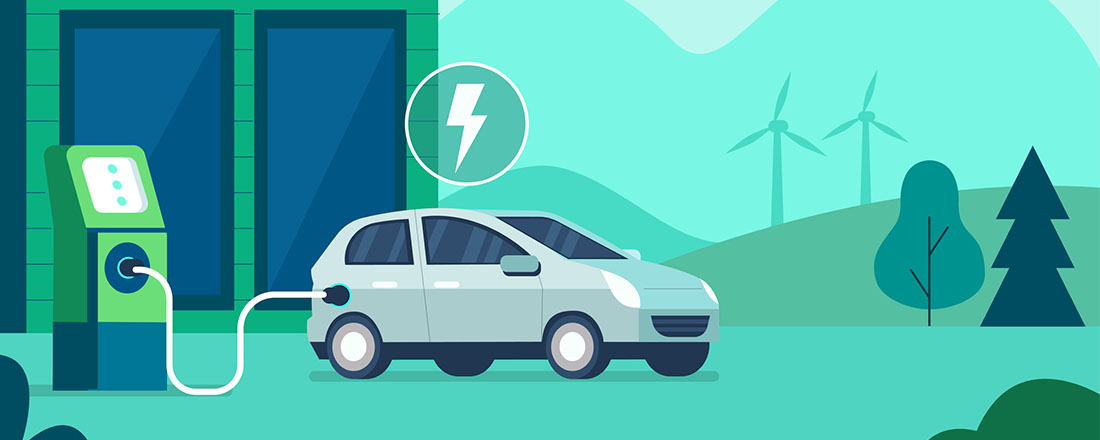We can not imagine a world without cars that run on gas. How would it be if carbon emissions from cars, trucks, and other vehicles, no matter how big or small, did not affect the environment? People also look out for EV Engineering Course.
Context
Blockchain is a shared database or ledger spread over a public or private computer network. The technology eliminates the need for a central authority to check transactions between two or more parties to avoid double-spending. It is encrypted and added to the chain of historical records as a new "block." Before being added to the ledger, each "block" is checked by multiple consensus protocols. Smart contracts, a set of rules written down on the blockchain that make transactions happen when the rules are met, can also be programmed into the blockchain. Blockchain technology could be used in many ways in the energy industry, from keeping track of electrons to handling payments.
Relevance & Impact
With the use of blockchain, the electric vehicle eco-system can immediately see many benefits, such as:
- EVs can charge and process payments automatically if the car is near the desired charging station, signing contracts directly with the station based on user preferences.
- Suppose blockchain is applied across the power sector. In that case, the source of electricity (renewable or not) for charging EVs can be confirmed (renewable or not), with a programmed preference for one over the other.
- Automatic confirmations allow payments to be received and validated promptly.
- If the selling market price is attractive, EVs can flow electricity into the grid, executing contracts automatically and serving as movable peak shaving electricity storage units.
Who Should Care
- Shared mobility companies
- Generators, transmission and distribution companies
- EV and charging station manufacturers
- State Transport Departments and Electricity Regulatory Commissions.
The Report
The future of mobility is shaped by how autonomous driving, connected vehicles, electrification, and shared mobility are all coming together thanks to digital technology. Change is happening because of changes to Electronic Vehicles (EVs) and concerns about the environment.
Even though there are problems with getting people to buy EVs, people in the EV industry are trying to solve the most significant issues, such as the higher price of the product, the lack of charging infrastructure, the lack of efficient engines, and battery problems.
Vehicle manufacturers (also called Original Equipment Manufacturers, or OEMs), Battery Technology Suppliers (BTS), Infrastructure Providers (IP), governments and regulators, and System Integrators (SI) are some of the key industry players trying to drive adoption. But because these organisations invest in separate areas, the impact on EV adoption is slow and small.
EV ecosystem players could get a lot out of working together as an industry to make their investments have a more significant impact and create more value for end customers, ecosystem players, and the environment as a whole.
Conclusion
This study shows how to build an EV ecosystem in India and the US. It also looks at how a blockchain-based ecosystem strategy could be used in markets with different levels of EV adoption. We must look at how blockchain technology can help the EV ecosystem with the "4T" features of trust and security, transparency and auditability, traceability and automation, and transactions and automation. Both electric vehicles (EVs) and blockchain technology have moved past the early hype, so now is the time to look into the opportunities they offer. One must also look out for Hybrid Electric Vehicle Courses With Placement In Mumbai.







